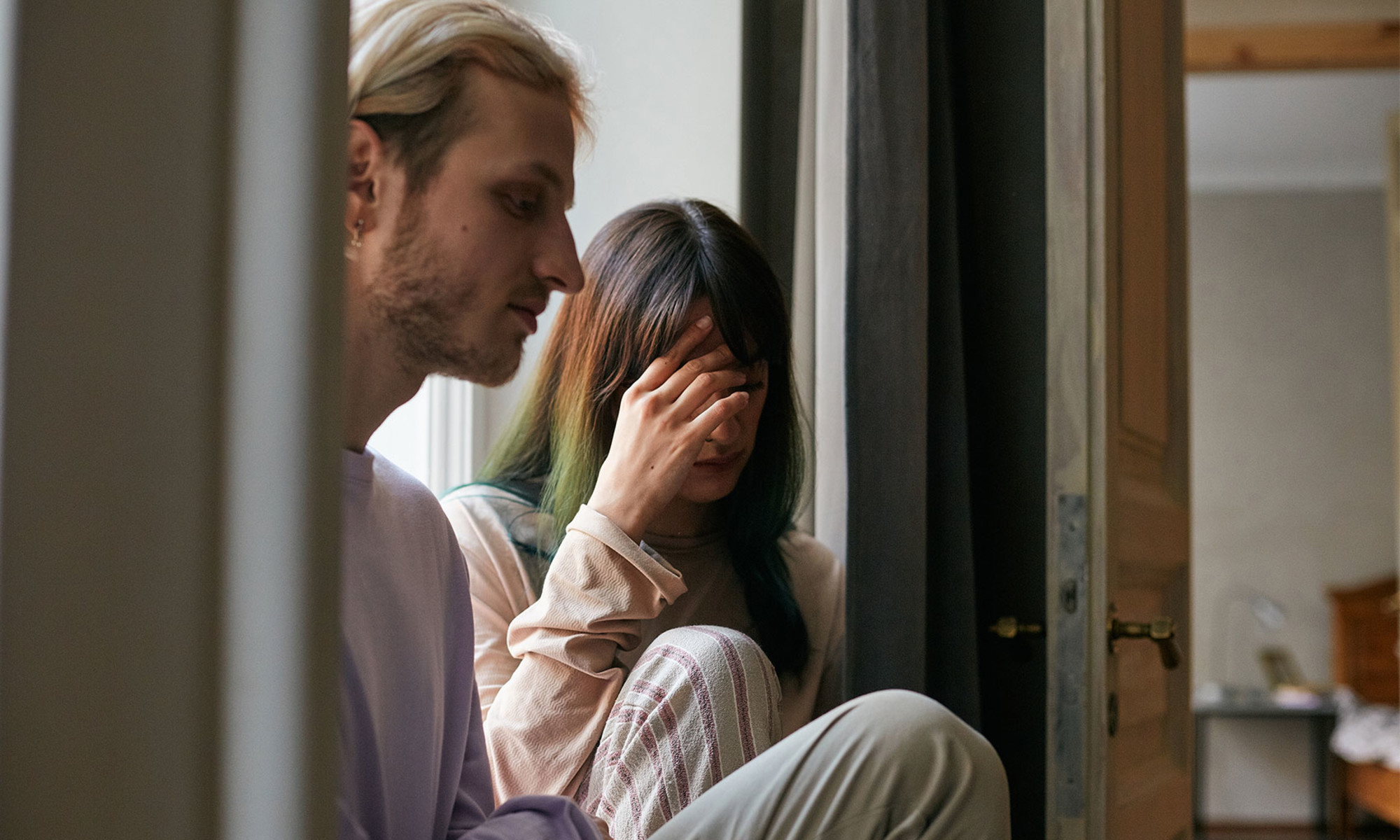When Bad Days Strike (And They Will...) Here's How I Turn The Day Around
You can always turn a bad day around.

Image by Lyuba Burakova / Stocksy August 27, 2023 When bad days happen, you can either run away and repress, or get curious and lean in. The prior might make you feel better in the short term, but the latter is what will help you build resilience, so bad days don't shake you quite so much. I'm no stranger to both sides of the coin, and over the years, I'm happy to say I've learned and established a handful of healthy coping mechanisms that help light the way when the road appears dark. Because the truth is, bad days are bound to happen—but what really counts is how you choose to respond to them.
Advertisement
This ad is displayed using third party content and we do not control its accessibility features.
That said, here are the seven things I lean on when the day needs a pick-me-up. 1. I'm a firm believer that nature is healing, and for what it's worth, research suggests it is too, with multiple studies1 showing that exposure to nature can help improve cognitive function, blood pressure, mental health, and sleep. There's something about a breath of fresh air that's, well, refreshing—not to mention it gives you a change of scenery, a chance to get on your feet and take a walk, and a reminder of the vastness of the world we live in. (Hello, perspective!) If I have time for it, I'll venture out to a more remote trail or forest, but even a walk in my local neighborhood helps me get out of my head and focus on taking in the sights and sounds. 2. I don't think I've ever left a yoga class and not felt better, straight up. Bonus points if it's in a hot room, because there's something about sweating it out that's just so cathartic. In fact, research on hot yoga2 has found it to be particularly effective in reducing negative-affect and state-anxiety in individuals who are under substantial stress in daily life—and I can personally attest to that. The hardest part with this one is revving up the motivation needed to get to a gym or studio, especially when I'm feeling less than about it. But I've been around the block enough times to know that I will feel better after, which is usually enough to convince me to get moving. This ad is displayed using third party content and we do not control its accessibility features. 3. With a yoga class and an outdoor stroll under my belt, I then give myself full permission to veg for the rest of the day. I'm talking feet up, favorite comforting meal on the coffee table, and my favorite sitcom on the TV. No guilt, no pressure to do anything else, just allowing myself to be. Relaxing might sound obvious, but you'd be amazed how tough it can be to chill when your mind is telling you to do the million other things on your to-do list. When you're in the throes of a bad mental health day, though, the to-dos can wait, but your peace shouldn't. 4. As a person who believes in souls and the unseen energy fields we're all a part of, I also believe it's necessary to cleanse your energy when it's feeling heavy or stagnant. There are plenty of ways you can do that, but I've found visualization to be the most powerful for me. One visualization I like involves imagining yourself in a bubble of pure light, which is clearing your energy field. You close your eyes and visualize yourself in that bubble, feeling the light purify and cleanse any heaviness, problems, tension, etc. The other one I've started doing recently (after I learned it on a trip to India) involves visualizing all your inner heaviness burning off your back as smoke or steam. You hold that visualization until you start to feel your system becoming lighter, and then once you feel it working, you visualize universal light coming into the front of your body, and specifically your heart. That light then fills the space cleared by the smoke, and all the while you tell yourself that you're rewiring neural pathways in a positive way. 5. I've been big on tarot reading over the past five years or so, and while I have had some pretty magical, synchronistic moments pulling cards that were inexplicably on-the-nose, I also think it's just a great way to tap into your own intuition. Each card in a tarot deck tells a story or represents an archetype—themes, qualities, and feelings we all experience. When you pull certain cards, it encourages you to figure out where your story aligns with the story in the card. In this way, you sometimes have to reframe the way you think about your situation to find the connection, and when you do find it, it's like, "A-ha! Why didn't I think of that?" For example, if I were to do a tarot reading on a less-than-optimal day, I might ask, "What's bothering me?" or "Why do I feel so agitated?" Then, lo and behold, I pull the Five of Pentacles, which represents material or earthly struggles. It might seem bleak, but the card depicts two struggling people walking right by a shelter with the light on. In this way, the card suggests I might be missing what's right in front of me that could help my situation, which forces me to think about where there's a "light on" in my life. 6. We all put our faith in different things, and those beliefs can color our perspectives and mindsets. When it comes to spirituality, faith, and religion, research shows3 that spiritual intelligence can significantly increase mental wellbeing and quality of life in young adults, and I've found this to be true myself. While I don't identify with any particular religion now, I do have a strong faith-based belief system of my own that has resulted from being raised Christian, practicing yoga, studying Buddhism and Hinduism, as well as dipping into more esoteric, occult philosophies. The two big things I try to remember on bad days, which stem from these beliefs I hold close to my heart, are: This ad is displayed using third party content and we do not control its accessibility features. 7. By the end of the day, once I've done all these things, I typically feel much better. There's still a chance, of course, that I might have some residual muck weighing me down—but either way, I know when it's time to pack it in and hope for a better day tomorrow. In the past, I was heavily inclined towards bedtime procrastination as a way to reclaim a bad day for myself (by staying up late doing things I wanted to do), but that only resulted in groggy mornings and low energy the next day. So now, even if I'm feeling better than I was, I still give myself extra time to rest and recoup by hitting the hay early and catching some extra shut eye.The natural world offers a respite from day-to-day troubles
Sweating feels cathartic
Advertisement
Permission to relax is not only granted, but encouraged
Energetic cleansing makes my system feel lighter
Intuitive guidance is found in tarot cards
Faith keeps me grounded in acceptance and non-attachment
Advertisement
Going to bed early is almost always the smart move
The takeaway
No amount of spiritual study, yoga, or tarot readings can prevent upsetting things from arising in your life—that much we can be sure. But what I am sure of, is that when you have the proper tools, practices, and inner faith to lean on, it makes those bad days a hell of a lot easier to get through.
Advertisement
This ad is displayed using third party content and we do not control its accessibility features.

 BigThink
BigThink 
































